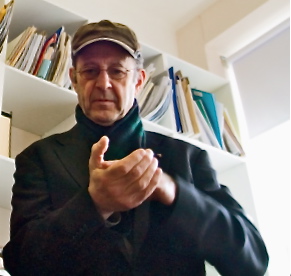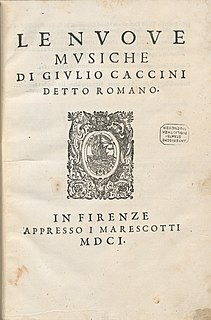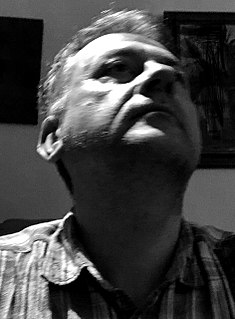
Pyotr Ilyich Tchaikovsky was a Russian composer of the Romantic period. He was the first Russian composer whose music would make a lasting impression internationally. He wrote some of the most popular concert and theatrical music in the current classical repertoire, including the ballets Swan Lake and The Nutcracker, the 1812 Overture, his First Piano Concerto, several symphonies, and the opera Eugene Onegin.

Renaissance music is traditionally understood to cover European music of the 15th and 16th centuries, later than the Renaissance era as it is understood in other disciplines. Rather than starting from the early 14th-century ars nova, the Trecento music was treated by musicology as a coda to Medieval music and the new era dated from the rise of triadic harmony and the spread of the ' contenance angloise ' style from Britain to the Burgundian School. A convenient watershed for its end is the adoption of basso continuo at the beginning of the Baroque period.

Stephen Michael Reich is an American composer known for his contribution to the development of minimal music in the mid to late 1960s.

Musical composition can refer to an original piece or work of music, either vocal or instrumental, the structure of a musical piece or to the process of creating or writing a new piece of music. People who create new compositions are called composers. Composers of primarily songs are usually called songwriters; with songs, the person who writes lyrics for a song is the lyricist. In many cultures, including Western classical music, the act of composing typically includes the creation of music notation, such as a sheet music "score," which is then performed by the composer or by other musicians. In popular music and traditional music, songwriting may involve the creation of a basic outline of the song, called the lead sheet, which sets out the melody, lyrics and chord progression. In classical music, orchestration is typically done by the composer, but in musical theatre and in pop music, songwriters may hire an arranger to do the orchestration. In some cases, a pop or traditional songwriter may not use written notation at all and instead compose the song in their mind and then play, sing or record it from memory. In jazz and popular music, notable sound recordings by influential performers are given the weight that written or printed scores play in classical music.

In music, monophony is the simplest of musical textures, consisting of a melody, typically sung by a single singer or played by a single instrument player without accompanying harmony or chords. Many folk songs and traditional songs are monophonic. A melody is also considered to be monophonic if a group of singers sings the same melody together at the unison or with the same melody notes duplicated at the octave. If an entire melody is played by two or more instruments or sung by a choir with a fixed interval, such as a perfect fifth, it is also said to be monophony. The musical texture of a song or musical piece is determined by assessing whether varying components are used, such as an accompaniment part or polyphonic melody lines.

A composer is a person who writes music, especially western art music, in any form, including vocal music, instrumental music, electronic music, and music which combines multiple forms. A composer may create music in any music genre, including, for example, western classical music, musical theatre, blues, folk music, jazz, and popular music. Composers often express their works in a written musical score using musical notation.

A madrigal is a secular vocal music composition of the Renaissance and early Baroque (1600–1750) eras. The polyphonic madrigal is unaccompanied, and the number of voices varies from two to eight, but usually features three to six voices, whilst the metre of the madrigal varies between two or three tercets, followed by one or two couplets. Unlike the verse-repeating strophic forms sung to the same music, most madrigals are through-composed, featuring different music for each stanza of lyrics, whereby the composer expresses the emotions contained in each line and in single words of the poem being sung.

In poetry, the term monody has become specialized to refer to a poem in which one person laments another's death.
The Florentine Camerata, also known as the Camerata de' Bardi, were a group of humanists, musicians, poets and intellectuals in late Renaissance Florence who gathered under the patronage of Count Giovanni de' Bardi to discuss and guide trends in the arts, especially music and drama. They met at the house of Giovanni de' Bardi, and their gatherings had the reputation of having all the most famous men of Florence as frequent guests. After first meeting in 1573, the activity of the Camerata reached its height between 1577 and 1582. While propounding a revival of the Greek dramatic style, the Camerata's musical experiments led to the development of the stile recitativo. In this way it facilitated the composition of dramatic music and the development of opera.

Giulio Romolo Caccini was an Italian composer, teacher, singer, instrumentalist and writer of the late Renaissance and early Baroque eras. He was one of the founders of the genre of opera, and one of the most influential creators of the new Baroque style. He was also the father of the composer Francesca Caccini and the singer Settimia Caccini.
Chorale settings refer to a wide variety of musical compositions, almost entirely of Protestant origin, which use a chorale as their basis. A chorale is a simple melody, often based on Gregorian chant, written for congregations to sing hymns. Chorale settings can be vocal, instrumental, or both.

Georges Lentz is a contemporary composer and sound artist, born in Luxembourg in 1965, and is that country's internationally best-known composer. Since 1990, he has been living in Sydney, Australia. Despite his relatively small output and his reclusiveness, he is also considered one of Australia's leading composers. He spends part of each year at his secondary residence in Berlin.
In the years centering on 1600 in Europe, several distinct shifts emerged in ways of thinking about the purposes, writing and performance of music. Partly these changes were revolutionary, deliberately instigated by a group of intellectuals in Florence known as the Florentine Camerata, and partly they were evolutionary, in that precursors of the new Baroque style can be found far back in the Renaissance, and the changes merely built on extant forms and practices. The transitions emanated from the cultural centers of Northern Italy, then spread to Rome, France, Germany, and Spain, and lastly reached England . In terms of instrumental music, shifts in four discrete areas can be observed: idiomatic writing, texture, instrument use, and orchestration.
The Baluch is a composition by Iranian composer Mehdi Hosseini for six instruments, written in 2009. It is in three movements and inspired by Persian folk music.
Peshtpa is a musical composition by the Iranian composer Mehdi Hosseini completed in 2009. It is based on Kurdish Music. The work is scored for an oboe, bass clarinet, and violoncello. The Trio presented at the International Conference A REVERSE PERSPECTIVE which was included on a program that is dedicated to the anniversaries of the births of Pushkin, Gogol, and Futurism and displayed music of the St. Petersburg school of composition.
Concerto for String Quartet and Chamber Orchestra (2008) is a composition by Persian composer Mehdi Hosseini. It was premiered in Saint-Petersburg on 23 May 2010 by the Saint-Petersburg State Philharmonic Symphony Orchestra conducted by Brad Cawyer. The piece is dedicated to Nigel Osborne, and is based on Iranian regional folk music from Torbat-e Jam.

Seyed Mehdi Hosseini Bami is a Persian composer of contemporary classical music.
The Symphony of Monody is a 2005 composition by the Persian composer Mehdi Hosseini, performed and recorded in Saint Petersburg on 3 June 2007 by the Saint Petersburg Academic Symphony Orchestra conducted by Daniel Black. The work is based on folk music material of Lorestan.

Sahba Aminikia is an Iranian-American contemporary music composer, artistic director, performer and educator. Born and raised in Tehran and based in San Francisco, California, his musical compositions have been widely performed around the world by contemporary classical ensembles orchestras, and bands, including Kronos Quartet, Brooklyn Youth Chorus, San Francisco Girls Chorus, Mahsa Vahdat, International Contemporary Ensemble, Carnegie Hall Ensemble Connect, Symphony Parnassus, Ensemble Elefant, ZOFO Duet, San Francisco Conservatory of Music New Music Ensemble, Mobius Trio, Delphi Trio, Amaranth Quartet, Living Earth Show, One Found Sound, and Afghanistan National Institute of Music. Aminikia is the founder and the artistic director of Flying Carpet Festival, a performing arts festival for children in war zones.

Mansoor Hosseini is an Iranian-Swedish percussionist and composer of classical music, born in Iran, who studied in Paris and Brussels. His works comprise chamber music and orchestral pieces. He founded the Ensemble Themus in Gothenburg, focussed on theatrical music.











